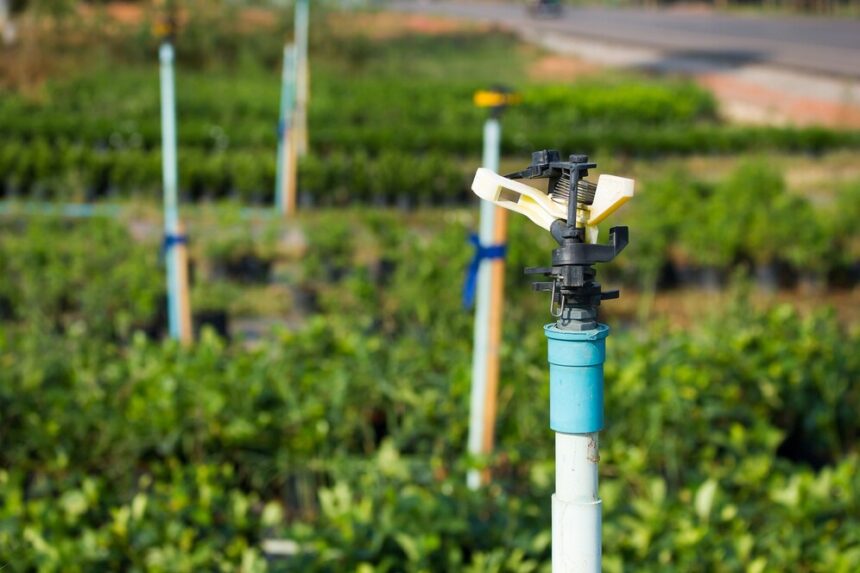Smart irrigation is rapidly transforming the agricultural landscape in South Africa, thanks to the integration of Internet of Things (IoT) technologies. With the country facing recurring droughts, erratic rainfall, and increasing pressure on water resources, farmers are seeking more efficient and sustainable ways to manage irrigation. IoT sensors are at the heart of this transformation, enabling precise monitoring and data-driven decisions that improve crop yields while conserving water.
The Role of IoT in Smart Irrigation
IoT-based smart irrigation systems rely on a network of interconnected sensors and devices that collect real-time data from the field. These systems monitor critical parameters such as soil moisture, temperature, humidity, and weather conditions. The data is then transmitted to a central platform or mobile app, allowing farmers to make informed decisions on when, where, and how much to irrigate.
Key Types of IoT Sensors Used
- Soil Moisture Sensors
These sensors measure the volumetric water content in the soil. They help determine the exact amount of water needed, preventing over- or under-irrigation.- Benefit: Saves water and ensures crops receive optimal moisture levels
- Application: Widely used in vineyards, maize, citrus, and sugarcane farms across South Africa
- Weather Sensors
Weather stations equipped with sensors measure rainfall, temperature, wind speed, and solar radiation. This data helps predict evapotranspiration rates and optimize irrigation schedules.- Benefit: Adjusts irrigation based on real-time and forecasted weather conditions
- Application: Especially useful in areas like the Western Cape with unpredictable climate
- Temperature and Humidity Sensors
These sensors monitor air temperature and humidity in the field. They are essential for understanding microclimates and disease risk, which can influence irrigation planning.- Benefit: Helps maintain ideal conditions for sensitive crops like berries and grapes
- Flow Meters and Pressure Sensors
These monitor water flow rates and detect leaks or pressure drops in irrigation lines, improving system efficiency and maintenance.- Benefit: Reduces water loss and operational costs
- Application: Common in drip and center pivot irrigation systems
- pH and EC Sensors
These sensors help measure the acidity and electrical conductivity of soil and water, giving insight into soil health and fertilizer levels.- Benefit: Ensures balanced nutrient delivery with water
Benefits of Smart Irrigation for South African Farmers
- Water Conservation: With many regions experiencing water scarcity, smart irrigation can reduce water use by up to 30–50% compared to traditional methods.
- Increased Crop Yields: Better moisture control leads to healthier crops and higher productivity.
- Cost Efficiency: Reduced water and energy use, along with minimized labor requirements, lower overall farming costs.
- Data-Driven Decisions: Real-time analytics help farmers respond quickly to changing conditions and optimize irrigation schedules.
- Sustainability: By conserving resources and reducing environmental impact, smart irrigation supports more sustainable agriculture.
Adoption Challenges
Despite the benefits, some challenges hinder widespread adoption in South Africa:
- High Initial Costs: IoT systems require investment in sensors, connectivity, and software.
- Connectivity Issues: Rural areas may struggle with poor internet or mobile network coverage.
- Technical Skills Gap: Some farmers need training to fully utilize smart irrigation technologies.
The Future of IoT in South African Agriculture
With increasing government and private sector support, the adoption of smart irrigation technologies is expected to grow. Local startups and agri-tech companies are developing cost-effective, solar-powered, and mobile-friendly solutions tailored for small to medium-scale farmers. Furthermore, integration with AI and machine learning will enable even smarter predictions and automation.
IoT sensors are playing a crucial role in revolutionizing irrigation practices in South Africa. By enabling precision agriculture, they help farmers optimize water use, improve crop health, and adapt to the country’s challenging climate. As technology becomes more accessible, smart irrigation is set to become a standard practice for sustainable and productive farming in South Africa.
Join 'Farmers Mag' WhatsApp Channel
Get the latest Farming news and tips delivered straight to your WhatsApp
CLICK HERE TO JOIN






